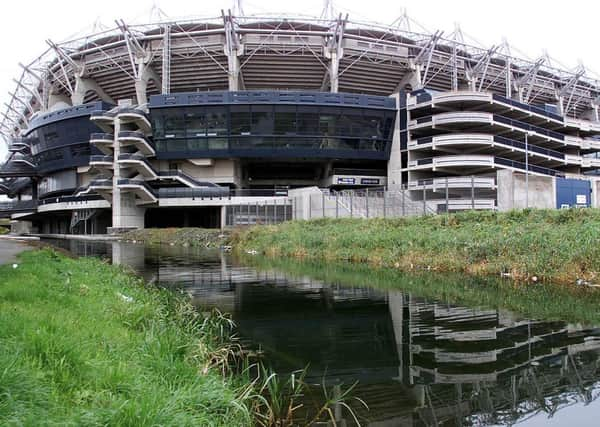Gaelic football maintaining amateur ideals in Broad Acres


Clubs were established as Irish immigrants travelled to Britain to find work and continued to play the game, which is one of the most popular sports in Ireland.
The sport, as it is known today, was first played on the Emerald Isle in the latter part of the 19th century. The Yorkshire Gaelic Athletic Association was formed in 1948 and has approximately 500 members and seven clubs who compete between March and September every year.
Advertisement
Hide AdAdvertisement
Hide AdDescribed as “intensive, combative, skilful and very,very entertaining,” by Yorkshire GAA secretary James Kilroy, the sport is played between two teams of 15 on a rectangular pitch.
Points are awarded whenever a player punches or kicks the ball into the other team’s goal or over the crossbar.
The goals are best described as a hybrid of a football net and rugby posts, with three points for a goal and one for a shot over the crossbar between the uprights.
Players are allowed to move the ball by a combination of kicking, hand-passing, carrying and bouncing. The Yorkshire GAA has six clubs based in the county with three in Leeds and one club located in Huddersfield, York and Sheffield while the seventh club is based in Newcastle.
Advertisement
Hide AdAdvertisement
Hide Ad“We have got players represented from all 32 counties in Ireland and from here, there and everywhere,” said Yorkshire secretary Kilroy, whose parents are from Ireland.
“It is really inviting for when people come into Leeds or Yorkshire that they can play a sport they know and appreciate.
“All clubs within Yorkshire try and instil a friendly, warm and welcoming environment.
“Apart from when the whistle blows and then we are battering the hell out of each other. That is the great thing about the sport as soon as the final whistle goes, we all come together and enjoy the social aspect.”
Advertisement
Hide AdAdvertisement
Hide AdThe sport is unique in many ways but one factor which sets it apart is that it is still a strictly amateur sport. Players and coaches are not allowed to receive any form of payment, even in Ireland where more than half-a-million people pass through the gates every year for the All-Ireland Championship.
Kilroy added: “The fitness of some of the guys is immense. The passion and dedication that has to go into that is phenomenal, considering it is still an amateur sport.”
Kilroy feels the amateur nature of the sport allows it maintain a community spirit.
“The best thing for me is the culture and camaraderie and the uniqueness of the game,” he continued.
Advertisement
Hide AdAdvertisement
Hide Ad“A lot of the older members who are still involved here in Yorkshire have been with their clubs since day one.
“You get that community spirit which is something you don’t always get in other sports. It helps generations of Irish people enjoy a sport they normally wouldn’t get access to.”
Brothers Pearse, based in Huddersfield and John F Kennedy’s, located in Leeds, also provide competition for junior players.
“We are really proud that within Yorkshire we can provide the transition from youth football to adult football,” continued Kilroy.
Advertisement
Hide AdAdvertisement
Hide AdYorkshire also compete nationally against six other associations – Scotland, Lancashire, Warwickshire, Hertfordshire, Gloucestershire and London – who make up the Provincial Council of Britain.
However, like every sport in Yorkshire, Gaelic football has been hit by the coronavirus pandemic and it looks increasingly likely that their season will be scuppered.
Kilroy added: “We would be well in the midst of our league and county competitions but our hands, like all sporting organisations, are tied by what the Government advises.”
Comment Guidelines
National World encourages reader discussion on our stories. User feedback, insights and back-and-forth exchanges add a rich layer of context to reporting. Please review our Community Guidelines before commenting.